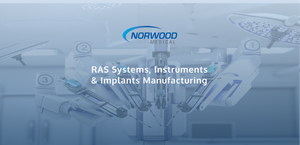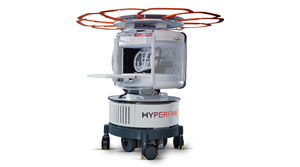As digital apps become available for medical devices, patients, and healthcare professionals - medtech companies find themselves armed with more and richer data. Industry experts discuss how to properly navigate this new sea of data.

As medical devices and digital apps increasingly merge, patients, healthcare professionals, and medtech companies find themselves armed with more and richer data. Digitally-enabled medical devices can record data which, if used properly, facilitates more personalized care and drives better outcomes for patients. These advanced devices also provide medtech companies with the information they need to do two important things: continually optimize product performance and prove to key stakeholders the efficacy and value of their products. And more of these devices are on the way.
Let’s consider two examples. A cardiologist implants a device within a stroke victim to monitor heart rhythm. This device connects via Bluetooth technology to a receiver in the patient’s bedroom, which sends real-time readings to the cardiologist’s office. This enhanced monitoring allows the physician to flag early warning signs in the patient. The medtech company could then use evidence of how the device prevents high-cost emergency room visits to make a case to payers for why they should cover the product.
Or, take an advanced glucose monitor that tracks blood sugar readings for a type 2 diabetic – and allows her to view her individual numbers and trends in her numbers on her smartphone. It also registers all potential variables – from the type of test strip used to the battery life of the monitor – to offer her endocrinologist more insight into her numbers, which could impact treatment plans. This data provides the medtech company with more granular detail about product operability. Additionally, the company could aim to demonstrate to payers the ways data-generated insights help the physician to improve patient treatment and outcomes.
So, digitally-enabled medical devices offer a great opportunity for the entire medical ecosystem. However, realizing the potential benefits of these enhanced data collection capabilities requires more than a determined will. Medtech companies must build robust and integrated data infrastructures on top of advanced, cloud-based technology to ensure they effectively collect, process, organize and analyze data – and then act on insights from the data – all while maintaining strict protocols around data security and patient privacy.
Consider outcomes from the start
The key first step in this process is planning ahead – way ahead. As early as the product design phase, a medtech company must think through the various data it could potentially collect from the device and how it could deploy this data in its interactions with stakeholders. Patient outcomes are paramount and dictate the success or failure of a product. So, a medtech company should have the real-world outcomes it expects from its device in mind. Then, the company must think about how to collect the data it will need to prove these outcomes to stakeholders.
Along these lines, it is important to understand what evidence payer relations and market access professionals need to make an effective case for the product. Early planning ensures the company builds into the device all the data-collection capabilities it needs to enhance patient outcomes and make the best possible commercial case for the product.
Build a robust and integrated data infrastructure
After mapping out the various data points it will need, the company must build a robust data infrastructure – and house it in the cloud – to ensure it can process, organize and analyze its large volumes of data efficiently. Cloud technology is an essential component of a strong data infrastructure. It offers scalable computing so companies can easily accommodate varying amounts of data and different numbers of users. The flexibility cloud technologies provide will become increasingly crucial as the quantities of data continue to increase – and accompanying analytical needs grow.
Importantly, this data infrastructure will accommodate far more than device-generated data. Medtech companies acquire everything from claims to electronic health record data and must organize and analyze this data, as well as internal data related to salesforce activity, the distribution channel and financial performance. Therefore, companies need powerful central repositories of data that various teams can access easily.
Raze silos
Medtech companies also need cross-functional cooperation across the organization to make optimal use of data. Too many companies operate with siloed teams that manage their own data sets separately. But, to truly understand patient outcomes and device efficacy, it’s important to integrate the various strands of data that exist across the organization to create a unified and accurate view of patients and results.
So, alongside a robust technological infrastructure, a medtech company must create a master data management plan to incorporate key data from different areas of the organization and offer a single source of truth to all data users at the company – including sales, commercial operations, medical science liaison, medical science, manufacturing, product design, clinical, payer and regulatory professionals. With centralized and organized data, the company can easily tie data into business intelligence software and reporting processes to ensure efficient analysis and dissemination of insights.
As a company centralizes its data, it must also respect the fact that some departments have sensitive data they must keep under lock and key. To maintain data security and reassure these groups, it’s important that a company put in place sophisticated access controls to ensure only the properly credentialed individuals can see this data.
Meet the needs of an on-demand economy
In an era of on-demand service, patients will increasingly push for more real-time access to their health information and more frictionless interactions with healthcare professionals. At the same time, health care professionals and payers seek more evidence of device effectiveness and real-world value. Medtech companies are already working to meet these market needs through technological innovation. But they must upgrade their data management processes alongside their device enhancements.
The medtech companies that harness the growing amounts and various types of data available by adopting sturdy data management infrastructures and unified processes will gain a competitive edge.
About the Author(s)
You May Also Like


